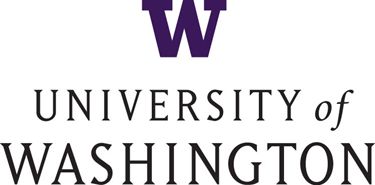Newswise — The U.S. National Science Foundation today announced 11 new artificial-intelligence research institutes, including one led by the University of Washington. These institutes are part of a $220 million investment spanning seven research areas in AI. Each institute will receive about $20 million over five years.
The UW-led AI Institute for Dynamic Systems will focus on fundamental AI and machine learning theory, algorithms and applications for real-time learning and control of complex dynamic systems, which describe chaotic situations where conditions are constantly shifting and hard to predict.
"The engineering sciences are undergoing a revolution that is aided by machine learning and AI algorithms," said institute director J. Nathan Kutz, a UW professor of applied mathematics. "This institute brings together a world-class team of engineers, scientists and mathematicians who aim to integrate fundamental developments in AI with applications in critical and emerging technological applications."
Researchers know the basic physics principles behind dynamic systems, which include situations such as turbulence or how the body recovers from an injury. But these scenarios are often happening on multiple timescales at once and can be a combination of many types of physics, making it hard for researchers to understand exactly what's going on.
"My favorite dynamic system is turbulence," said institute associate director Steve Brunton, a UW associate professor of mechanical engineering. "We literally live and breathe inside of a working fluid, and so do nearly all of our machines. But because of the multiscale complexity of the fluid, which involves a cascade of increasingly smaller eddies, we still have an incredibly hard time predicting what fluids will do outside of idealized and controlled settings."
The overall goal of this institute is to integrate physics-based models with AI and machine learning approaches to develop data-enabled efficient and explainable solutions for challenges across science and engineering.
"Some of our specific questions include: Can we develop better machine-learning technologies by baking in and enforcing known physics, such as conservation laws, symmetries, etc.?" Brunton said. "Similarly, in complex systems where we only have partially known or unknown physics — such as neuroscience or epidemiology — can we use machine learning to learn the 'physics' of these systems?"
In addition to research, the institute will be focused on training future researchers in this field throughout the education pipeline. Some examples include: partnering with high school programs that focus on AI-related projects and creating a post-baccalaureate program that will actively recruit and support recent college graduates from underrepresented groups, United States veterans and first-generation college students with the goal of helping them attend graduate school.
"The institute will provide massive open-source educational materials that include lectures, data and code packages for advancing and empowering AI," Kutz said. "Importantly, we will provide AI ethics training for all involved in the institute. We will also make this training available to the community at large, thus enforcing a disciplined approach to thinking about AI and its implications for our emerging societal concerns around data, data privacy and the ethical application of AI algorithms."
For this institute, the UW is partnering with several regional institutions — the University of Hawaii at Mānoa, Montana State University, the University of Nevada Reno, Boise State University, the University of Alaska Anchorage and Portland State University — as well as with Harvard University and Columbia University.
"We are so excited to bring together a critical mass of amazing and innovative researchers from across the U.S. to really move the needle in developing machine learning technology for physical and engineering dynamic systems," Brunton said. "We also have a deep connection with industry partners, such as Boeing, which provides us with an incredible opportunity to make sure that we are focused on important and relevant problems and that our technology will actually be used."
Additional UW researchers who are part of this institute are lead researcher Krithika Manohar, assistant professor of mechanical engineering; Maryam Fazel, professor of electrical and computer engineering; Daniela Witten, professor of biostatistics; and David Beck, a research associate professor of chemical engineering.
"I'm glad to see this substantial investment going to one of our state's premier research institutions," said U.S. Sen. Patty Murray, D-Wash. "As the University of Washington and other research institutions in our state continue to lead on artificial intelligence, this investment will be critical to ensuring that the state of Washington remains a leader in innovation, research and scientific achievement. I'll keep fighting for important federal investments like this one to move this work forward."
The UW is also a partner institution on another newly announced NSF institute, the AI EDGE Institute, which is led by Ohio State University. The goal of this institute is to design future generations of wireless edge networks that are highly efficient, reliable, robust and secure.
These 11 new AI institutes are building on the first round of seven AI institutes funded in 2020, and expand the reach of these institutes to include a total of 40 states and Washington D.C. In addition to the UW-led institute, the state of Washington will also house the Institute for Agricultural AI for Transforming Workforce and Decision Support, or AgAID Institute, led by Washington State University. The institute’s goal is to use AI to tackle some of agriculture’s biggest challenges related to labor, water, weather and climate change.
"The state of Washington is already a leader in artificial intelligence,” said U.S. Sen. Maria Cantwell, D-Wash. "From the University of Washington's Tech Policy Lab that studies the grand challenges around artificial intelligence to Washington State University's work in precision agriculture, we are more than ready for these two grants to help us understand more artificial intelligence applications. The UW will work in the area of complex systems to improve fields like manufacturing, and WSU will work on improvements in farming."
The AI Institute for Dynamic Systems is partially funded by the U.S. Department of Homeland Security.
###
